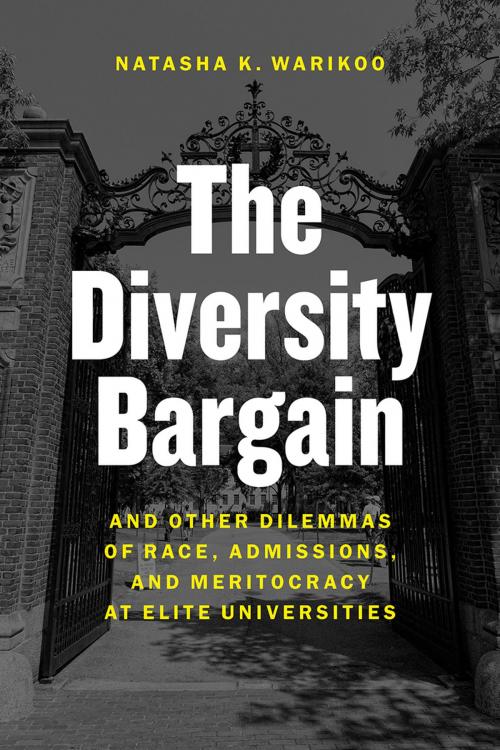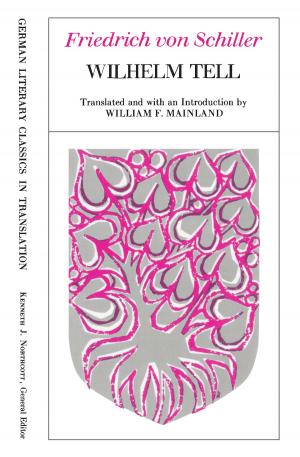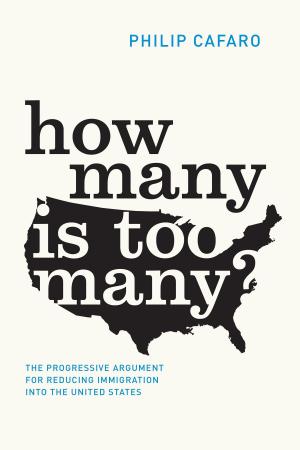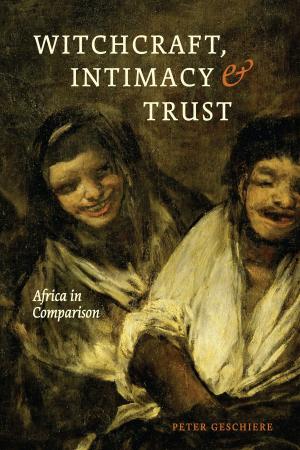The Diversity Bargain
And Other Dilemmas of Race, Admissions, and Meritocracy at Elite Universities
Nonfiction, Reference & Language, Education & Teaching, Higher Education, Social & Cultural Studies, Social Science, Sociology| Author: | Natasha K. Warikoo | ISBN: | 9780226400280 |
| Publisher: | University of Chicago Press | Publication: | November 15, 2016 |
| Imprint: | University of Chicago Press | Language: | English |
| Author: | Natasha K. Warikoo |
| ISBN: | 9780226400280 |
| Publisher: | University of Chicago Press |
| Publication: | November 15, 2016 |
| Imprint: | University of Chicago Press |
| Language: | English |
We’ve heard plenty from politicians and experts on affirmative action and higher education, about how universities should intervene—if at all—to ensure a diverse but deserving student population. But what about those for whom these issues matter the most? In this book, Natasha K. Warikoo deeply explores how students themselves think about merit and race at a uniquely pivotal moment: after they have just won the most competitive game of their lives and gained admittance to one of the world’s top universities.
What Warikoo uncovers—talking with both white students and students of color at Harvard, Brown, and Oxford—is absolutely illuminating; and some of it is positively shocking. As she shows, many elite white students understand the value of diversity abstractly, but they ignore the real problems that racial inequality causes and that diversity programs are meant to solve. They stand in fear of being labeled a racist, but they are quick to call foul should a diversity program appear at all to hamper their own chances for advancement. The most troubling result of this ambivalence is what she calls the “diversity bargain,” in which white students reluctantly agree with affirmative action as long as it benefits them by providing a diverse learning environment—racial diversity, in this way, is a commodity, a selling point on a brochure. And as Warikoo shows, universities play a big part in creating these situations. The way they talk about race on campus and the kinds of diversity programs they offer have a huge impact on student attitudes, shaping them either toward ambivalence or, in better cases, toward more productive and considerate understandings of racial difference.
Ultimately, this book demonstrates just how slippery the notions of race, merit, and privilege can be. In doing so, it asks important questions not just about college admissions but what the elite students who have succeeded at it—who will be the world’s future leaders—will do with the social inequalities of the wider world.
We’ve heard plenty from politicians and experts on affirmative action and higher education, about how universities should intervene—if at all—to ensure a diverse but deserving student population. But what about those for whom these issues matter the most? In this book, Natasha K. Warikoo deeply explores how students themselves think about merit and race at a uniquely pivotal moment: after they have just won the most competitive game of their lives and gained admittance to one of the world’s top universities.
What Warikoo uncovers—talking with both white students and students of color at Harvard, Brown, and Oxford—is absolutely illuminating; and some of it is positively shocking. As she shows, many elite white students understand the value of diversity abstractly, but they ignore the real problems that racial inequality causes and that diversity programs are meant to solve. They stand in fear of being labeled a racist, but they are quick to call foul should a diversity program appear at all to hamper their own chances for advancement. The most troubling result of this ambivalence is what she calls the “diversity bargain,” in which white students reluctantly agree with affirmative action as long as it benefits them by providing a diverse learning environment—racial diversity, in this way, is a commodity, a selling point on a brochure. And as Warikoo shows, universities play a big part in creating these situations. The way they talk about race on campus and the kinds of diversity programs they offer have a huge impact on student attitudes, shaping them either toward ambivalence or, in better cases, toward more productive and considerate understandings of racial difference.
Ultimately, this book demonstrates just how slippery the notions of race, merit, and privilege can be. In doing so, it asks important questions not just about college admissions but what the elite students who have succeeded at it—who will be the world’s future leaders—will do with the social inequalities of the wider world.















